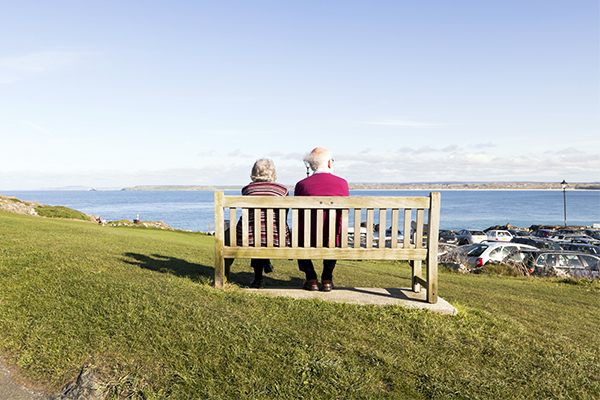We’ve contributed to a new guide aimed at increasing access to psychological therapies by older people.
The IAPT Older People's Positive Practice Guide aims to help health professionals, including GPs and IAPT providers, as well as commissioners, to identify and address barriers older people face when accessing support for mental health issues.
The guide, which has been published by Age UK, addresses the disparities in referral rates for talking therapies, and some of the attitudes and behaviours of professionals and older people themselves that may get in the way.
Access
It also explores issues with communication and some of the physical barriers older people face when trying to access these services.
Jeremy Bacon, our Third Sector Lead, said: “Low rates of uptake of talking therapies in the NHS IAPT service in England have been recognised for some time now, and we know from findings of our own research that older people aren’t accessing third sector community-based counselling services.
“The reasons for this are complex, and this guide will help services to give greater consideration of the barriers that can keep older people away from therapy, recognising the importance of autonomy and choice of how therapy is delivered as being key to engaging people of all ages.”
Caroline Abrahams, Age UK charity director, said: “This guide addresses the many reasons that prevent older people from accessing talking therapies. Age UK’s own evidence shows older people often do not ask for support with mental health problems but when they do they are more likely to be prescribed medication rather than psychological therapies.
Misconceptions
“Mental health problems may be poorly addressed in health settings because mental health is seen as secondary to physical health problems, but depression and anxiety disorders should not be dismissed as an inevitable outcome of old age.
"Therefore, it’s essential we tackle any misconceptions about mental health and older people head on.
“Recovery rates for older people who access IAPT services are better than those reported for the under-65s, which is why it is vital that we change attitudes so we can improve the quality of life of our older people.”
Age UK said that before the pandemic older people were already under-referred for IAPT or talking therapy services. The charity says it expected at least 12% of people accessing IAPT services to be 65 and over, but only 6% to 7% of the group have accessed such services in the last 10 years.
Respond well
Recently the proportion has been going down, despite older people being as likely as other age groups to experience common mental health conditions and respond well when accessing IAPT services.
Drops in referrals to IAPT come at a time when older people’s need for mental health services has soared. In the last year, fear of catching COVID-19, months of staying inside with limited social contact and a reduced ability to do things they enjoy has led to more older people experiencing symptoms of depression and anxiety. The rate of depression amongst over 70s has doubled[i] while one in three people over 70 are reporting high levels of anxiety[ii]. When the lockdown restrictions are lifted many will need additional support to return to normal activities of daily life.
We were part of a working group to help produce the guide with colleagues from Age UK, NHS England, the Mental Health Foundation, as well as academics and older people’s psychologists. The guide is being published by the British Association for Behavioural and Cognitive Psychotherapies and is available to download.
[i] Office for National Statistics (2020), ‘Coronavirus and depression in adults in Great Britain: June 2020’. Available at: https://www.ons.gov.uk/peoplepopulationandcommunity/wellbeing/articles/coronavirusanddepressioninadultsgreatbritain/june2020
[ii] Office for National Statistics, ‘Opinions and lifestyle survey, 27 to 31st January 2021’. Available at: https://www.ons.gov.uk/peoplepopulationandcommunity/healthandsocialcare/healthandwellbeing/bulletins/coronavirusandthesocialimpactsongreatbritain/latest

Older people
Exploring the role of counselling in improving the lives of older people, and promoting the value of talking therapies to this group, is a priority for BACP.

Older people missing out on therapy to support mental health
New Independent Age report calls for action to ensure talking therapies are included as a choice for older people

Counselling older people
The age range of clients accessing talking therapies in the UK does not reflect the demographic age profile of its population. The older we get, the less likely we are to recognise or seek help for common mental health problems. As average age continues to rise, this briefing considers the role of counselling in supporting wellbeing in later life.
